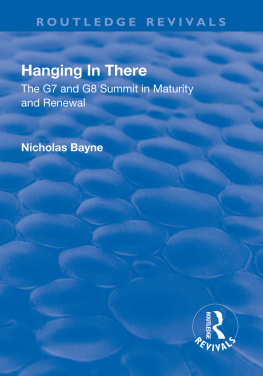All rights reserved.
Book design by Beste M. Doan, adapted for ebook
INTRODUCTION
I was looking at a field of sunflowers. They were deadblack, desiccated, their honeycombed faces having been pecked or otherwise stripped of their former multitudes of seeds. They looked stranded to me, caught between the season of their flourishing and the next one, the one that would see them all plowed under.
Nothing gold can stay, I commented with a quick nudge to my partner, Dave, who was beside me in the passenger seat.
We were on our way to Sherry and Virgils house and taking our chances with detours because we had extra time. A strip of dirt road divided the field of dead sunflowers from Old Crossing and Treaty Park, which is a sort of wayside stopping point along the Red Lake River, in eastern Minnesota. Every time we saw Sherry and Virgil, they would tell us to visit the park and read about the oxcarts that, back in the mid-1800s, used to cross there on their four-hundred-plus-mile journeys from Winnipeg to St. Paul. The spot was one of the only of its kind along the river, shallow and wide enough to allow the oxen to get across. This made it an important place in an otherwise unimportant landscape: nearby Red Lake Falls, the town where Sherry and Virgil lived, had recently been named the worst place to live in America by a Washington Post reporter who used data, apparently, to justify that ranking.
Dave and I had driven over that morning from our home in Grand Forks, which sits about thirty miles west, right where the Minnesota border cozies up to its neighbor, North Dakota. It was Sherry who had invited us, luring us with promises of late-season producesquash and potatoes and pumpkins from the fields that she and Virgil tended together on their land, apples from their trees, late-season raspberries that could still be found clinging to their bushes. We had to stop off on the way to pick up a piece of used furniture, an oak cabinet we had bought off of Craigslist. We had it behind us in the back, swaddled in wool blankets that were moth-pocked and no good to us anymore, when we paused at the park and stepped out of the car.
Winter had done its thing already and blanched our surroundings, though it was only October. As we examined the plaques that explained about the oxcarts (and also about the treaty that had forced the Red Lake band of Chippewa to cede the fertile farmlands of Red River Valley to the U.S. government), a few flakes of snow slipped down, let loose from a sky that was as gray as the grass. Across the road, all those charred-looking sunflowers clicked and creaked in the wind.
We didnt stay long; it was too cold. But it gave us a chance to pause and issue some advanced warning to our hosts.
Dave made the call and it was Virgil who answered. Well be there in about twenty minutes, he said, explaining the part about the stop in Crookston and the oak cabinet.
Twenty minutes? Great! Ill get lunch started.
I could hear Virgils voice loud and clear through the phone. He had a habit of shouting because, now in his seventies, he was getting to be hard of hearing. Virgil and Sherry always had lunch to offer, no matter what time of day it was, and it was always a good lunch: venison stew, baked squash with wild rice, hot raspberries poured over vanilla ice cream for dessert. Their life on the farm always struck me as being one of plenty, no matter what the guy from The Washington Post had to say about it. They had sheep and alpacas and an old donkey, who was partial to being fed carrots and receiving pets on the nose, plus chickens and cats, and dogs running circles around the chickens and cats. Though my partner and I saw them every day in the halls at the university where we worked, we were always happy to haul out to Minnesota on the weekends to hang out with Sherry and Virgil at their home.
Okay, see you soon, said Dave, and he was in the process of hanging up when we both heard Virgils voice again.
Hang on Dave put the phone back up to his ear.
Whats that, Virgil?
Im sorrywhat did you say your name was?
Virgil had missed the part at the beginning of the call when Dave had identified himself. Its Daveas in Dave and Sheila? We work together?
Oh, oh, great! Virgil seemed even more excited now that he knew who it was that he was making lunch for. Dave hung up the phone and we sat there for a second and watched the flakes land and grow runny there on the windshield.
We could have been strangers off the street and he would still be making us lunch, Dave said. He shook his head and smiled in charmed disbelief.
Hanging out is about daring to do nothing much and, even more than that, about daring to do it in the company of others. The concept of hanging out covers a broad spectrum of activitiessome of them accidental and improvisational, some of them rather structured and planned (as in the kind of hanging out that happens at a formal gathering like a wedding, say). Regardless of the specific occasion, though, or of the amount of planning that has gone into creating it, the objective is the same: its about blocking out time and dedicating it to the work of interacting with other people, whoever they might be.
In the case of my old colleague, Virgil, it didnt matter who we were. Dave was right: we could have been strangersanybody with access to his phone numberand he would have been just as interested in our story about procuring the oak cabinet and in the prospect of hanging out with us over lunch. But what impressed me most in this instance was how quickly and easily that response took shape in him, like it wasnt a choice so much as a reflex or a built-in feature. Virgil was down to hang out; whats more, his inclination and willingness to do so superseded, even, his interest in finding out who it was that he was supposed to be hanging out with. Sherry must have forgotten to tell him that we were coming, or else he forgot that she had told him, and yet the news of receiving unexpected company didnt appear to bother him in the slightest.
As bemused as I was by Virgils enthusiasm, I found my own reaction to it even more perplexing. Why, I wondered, did this not feel normal? Why, and through what means, had my expectations been engineered to prepare me for a different kind of scenario, one in which having strangers show up at your house for lunch might be viewed as an unwelcome incursion, as an inconvenience? Why did hanging out feel so hard at times if, in reality, it could be that easy? What forces prevented it from feeling that way all the time?
The story Ive been telling about visiting Sherry and Virgil at their home took place several years ago and, since then, a lot has changed. For instance, I dont live in North Dakota anymore. When I hang out with Sherry and Virgil now, Im forced to do it via email or video chat or phone, or else through the occasional letter or Christmas card. This is not the same as having lunch with them, in the little, three-room house that they built themselves and installed on the land that Virgil inherited from his parents, around the low table made from a single, crosscut slab of polished wood. Its not the same, but it is, in its own way, more customary, since it bears resemblance to the methods that govern much of the hanging out I do these days. Digital devices and technologies make that other kind of hanging out easier, but they also strip it of the experiences and particularities of place. What gets lost, along with those particularities, are deeper shades of connection, intimacy, and meaning.











